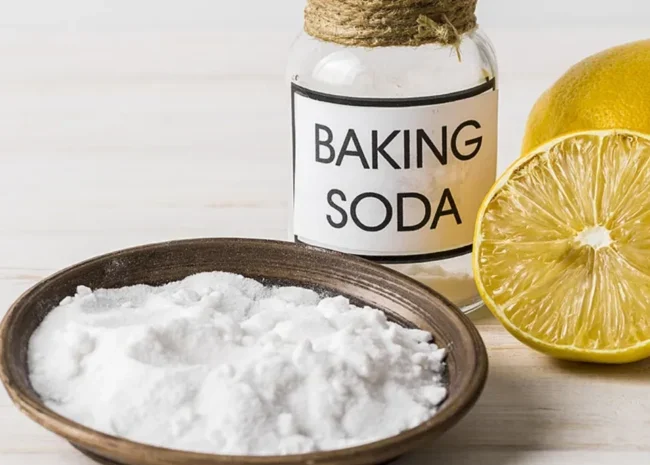Baking soda, or sodium bicarbonate, is a versatile ingredient with various uses in cooking, cleaning, and personal care. From neutralizing stomach acid to acting as a leavening agent in baking, it has its benefits when used in moderation and appropriately.
Health benefits and risks depend on how it’s used:
- Neutralizing Acid: Baking soda can act as an antacid, neutralizing stomach acid. This can provide relief from heartburn and indigestion when consumed in appropriate amounts. However, overconsumption can lead to electrolyte imbalances and other health issues.
- Cleaning: Baking soda is often used as a natural cleaning agent due to its abrasive and deodorizing properties. When used in cleaning, it’s generally safe, but it’s essential to avoid ingesting large amounts.
- Cooking: Baking soda is a leavening agent commonly used in baking to help dough rise. It reacts with acids in the recipe to produce carbon dioxide, which creates bubbles and causes the dough to expand. In cooking, it’s generally safe in moderation.
However, it’s crucial to note that consuming too much baking soda can have adverse effects. Excessive intake can lead to metabolic alkalosis, a condition where the body’s pH becomes too alkaline, which can disrupt normal bodily functions and lead to serious health issues like muscle weakness, spasms, and even heart problems.
Additionally, baking soda may interact with certain medications or medical conditions, so it’s essential to consult with a healthcare professional before using it as a remedy or supplement.
In summary, while baking soda can have some health benefits and uses, moderation is key. Always use it as directed and consult with a healthcare professional if you have any concerns about its use or potential side effects.







